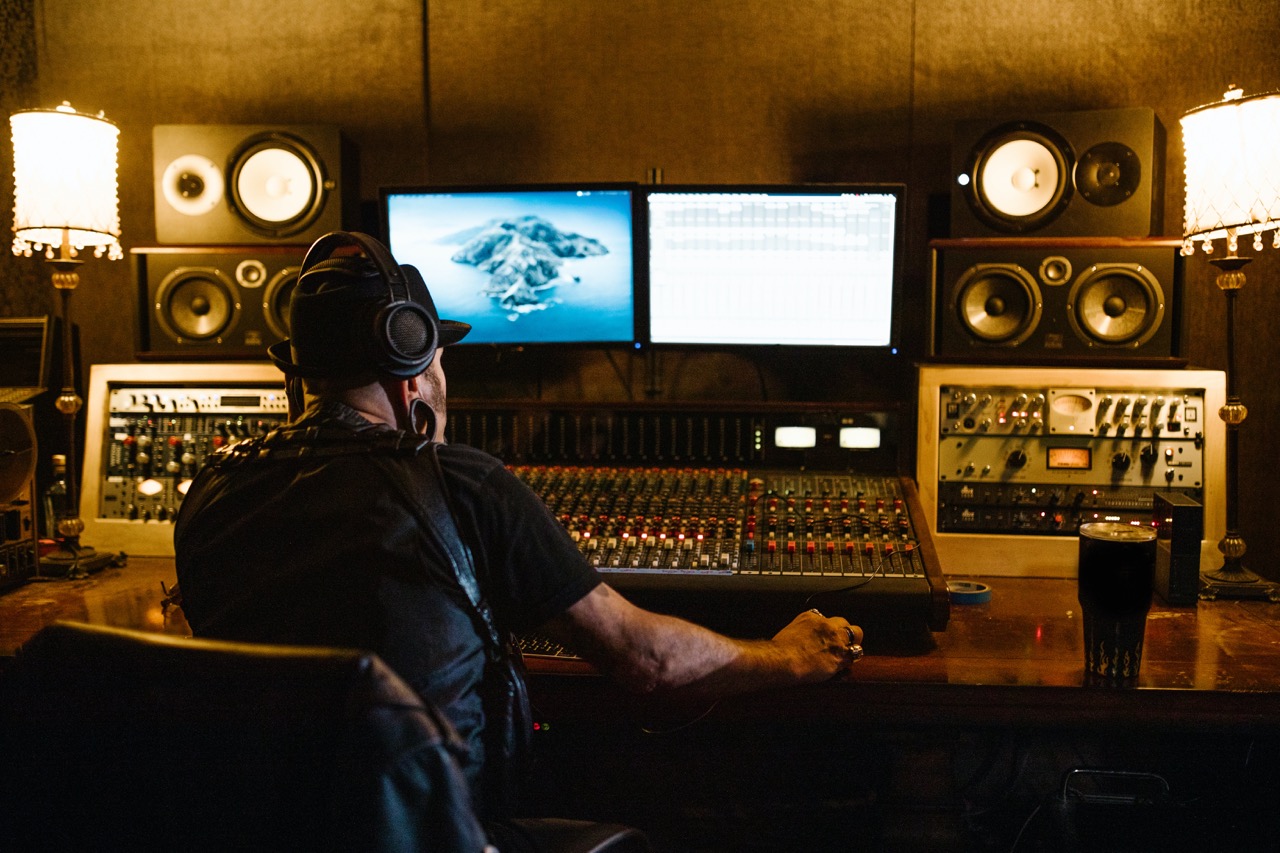
Welcome to the intriguing world of music production! In this era, where technology intersects with artistry, the landscape of the music industry is continuously evolving, offering numerous opportunities for aspiring music producers. The magic behind every chart-topping hit, every resonating album, is often the work of a skilled music producer. Their role involves not just technical expertise in sound management, but also a deep understanding of music and its nuanced elements. As you embark on your journey in music production, remember that it’s a field that promotes constant learning and growth. Each step you take brings you closer to refining your skills and becoming a successful music producer.
How to Become a Music Producer: A Beginner’s Guide
Breaking into the world of music production might seem like a daunting task, but with a bit of guidance, it’s a dream within your reach. Here is a step-by-step guide to kick-start your journey:
Acquiring the Basics: Start by getting familiar with different genres and styles of music. Listen to various types of music and understand the different elements that come together to create a song.
Education and Training: There are numerous online and offline courses that can help you learn the basics of music theory and understand the intricacies of sound design and production.
Practical Application: Start creating your own music using software like Ableton Live, Logic Pro, or Pro Tools. The more you practice, the better you’ll understand the art of music production.
Feedback and Improvement: Share your music with others and be open to criticism. Use the feedback to improve your production skills.
Networking: Attend industry events, music concerts, and seminars. Networking with other music professionals can provide valuable insights and potential collaboration opportunities.
7 Essential Tips for Aspiring Music Producers
As you start this exciting journey, here are seven actionable tips to help you establish yourself in the music production industry:
- Understanding Your Craft: Music production isn’t just about having the right software; it’s about understanding the nuances of music theory, mastering your production tools, and continuously refining your techniques. Spend time learning and practicing until you are comfortable with the tools of your trade.
- Networking: The music industry thrives on connections. Attend music events, join online forums and communities, and don’t be afraid to reach out to established producers. Building a strong network can open doors to opportunities and collaborations that can significantly boost your career.
- Constant Learning: Music production is a field that is continuously evolving. Stay updated with the latest production techniques, software updates, and industry trends. Continuous learning will help you stay relevant and competitive in this dynamic field.
- Experimentation: Creativity is the heart of music production. Don’t be afraid to experiment with different sounds, styles, and genres. Sometimes, the most unconventional ideas can lead to the most memorable music.
- Finding Your Sound: As you explore and experiment, strive to find your unique sound, something that sets your music apart from the rest. This signature style can become your identity in the music industry.
- Valuing Feedback: Constructive criticism is a valuable tool for growth. Welcome feedback from your peers, mentors, and listeners, and use it to refine your skills and improve your music.
- Resilience: The path to becoming a successful music producer can be challenging. You’ll face competition, setbacks, and criticism. However, staying motivated, maintaining your passion for music, and demonstrating resilience will help you navigate these hurdles and rise in your career.
Remember, becoming a successful music producer is not an overnight achievement. It requires dedication, continuous learning, and an undying passion for music. Embrace the journey, and let your love for music guide you towards your dream.
The Future of Music Production
As we move forward into the uncharted territories of the future, it’s crucial to understand the trajectory of music production trends. The transformation of the music industry is powered by an array of forces, including advancements in technology, shifts in consumer behavior, and the relentless creative drive of artists and producers.
Music Production Trends Shaping the Future
One major trend in music production is the democratization of tools. With sophisticated software becoming more accessible and affordable, anyone with a laptop and a dream can start their journey in music production. This is breeding a new generation of producers who are pushing the boundaries of music creativity.
Artificial Intelligence (AI) is another driving force in the future of music production. From creating music to mastering tracks, AI technologies are enhancing and, in some cases, transforming how music is produced. This does not mean that AI will replace human creativity, but rather it can act as a tool that expands the possibilities for producers.
Lastly, the trend towards remote collaboration has been accelerated due to the recent global changes. Tools for remote music production and collaboration have seen a significant boost in usage, showing that geography is no longer a barrier to creating music.
Future Predictions Based on Expert Opinion and Industry Data
According to experts, the future of music production will see even more integration of technology. The adoption of Virtual Reality (VR) and Augmented Reality (AR) in music production could further revolutionize how music is created and experienced.
Moreover, with increasing internet penetration and advancements in digital distribution, the music production landscape is becoming more global than ever. As per industry data, music genres and styles from different parts of the world are blending more seamlessly, creating a truly global music culture.
Success Stories of Top Music Producers
Success in the music industry often seems shrouded in glamour and mystery, but every successful music producer has a story of hard work, dedication, and resilience behind their achievements.
The Journey of Pharrell Williams
Pharrell Williams, one of the most successful music producers of our time, began his journey in his high school band. His breakthrough came when he formed ‘The Neptunes’ with his friend, Chad Hugo, and they began producing for artists like N.O.R.E and Jay-Z. Pharrell’s commitment to honing his craft, embracing his unique sound, and pushing musical boundaries played a crucial role in his rise to fame.
Timbaland’s Path to Success
Timbaland, another prominent figure in music production, started off as a DJ. His big break came when he started working with artists like Aaliyah and Missy Elliot. Known for his innovative production style, Timbaland exemplifies the importance of experimentation and finding your own sound in music production.
Advice for Aspiring Producers
From their journeys, these successful producers share some common advice for those aspiring to make their mark in the industry. They emphasize the importance of understanding your craft, continuously learning, valuing feedback, and staying resilient in the face of challenges. Additionally, they stress on the significance of finding your unique sound and staying true to it, no matter the prevailing trends.
In conclusion, the world of music production is ever-evolving, and the path to success is not always straightforward. However, with dedication, persistence, and passion, you can make your dream of becoming a successful music producer a reality.
Some FAQs Answered On The Relevant Topic
Aspiring music producers often have a host of questions when they are just starting out. Here, we aim to answer some of the most frequently asked queries.
What software do I need to start producing music?
Music production software, also known as Digital Audio Workstations (DAWs), are a crucial tool for any music producer. There are several high-quality DAWs available, with Ableton Live, Logic Pro, FL Studio, and Pro Tools being some of the most popular. The choice of DAW often comes down to personal preference and the type of music you intend to produce.
How can I promote my music?
Promoting your music involves a combination of online and offline strategies. Online, you can leverage social media platforms, music streaming services, and YouTube to reach a wider audience. Offline, networking with industry professionals and performing at live events can help you gain more exposure.
How important is music theory in production?
While it’s not mandatory to master music theory, having a basic understanding can significantly aid your production process. It can help you make more informed decisions about chord progressions, harmonies, and melodies, enhancing the overall quality of your music.
Do I need expensive equipment to start producing music?
While high-quality equipment can enhance the production process, it’s not essential when you’re just starting out. A decent computer, a good pair of headphones, and the right DAW can be enough to begin your music production journey.
In Conclusion, the path to becoming a successful music producer is a journey filled with continuous learning, networking, experimentation, and resilience. By mastering your craft, promoting your music, and staying true to your unique sound, you can establish your foothold in the music industry. Regardless of the challenges you may encounter, remember that music production is a rewarding career that allows you to express your creativity and leave a lasting impact on the cultural landscape. So keep pushing forward, stay inspired, and let your passion for music guide you on this exciting journey.

Eric Dalius is The Executive Chairman of MuzicSwipe. Eric Dalius is also the host of the Weekly podcast program named FULL SPEED. Eric Dalius is also a philanthropist, who has established four scholarships for US based graduate & under grad students.
